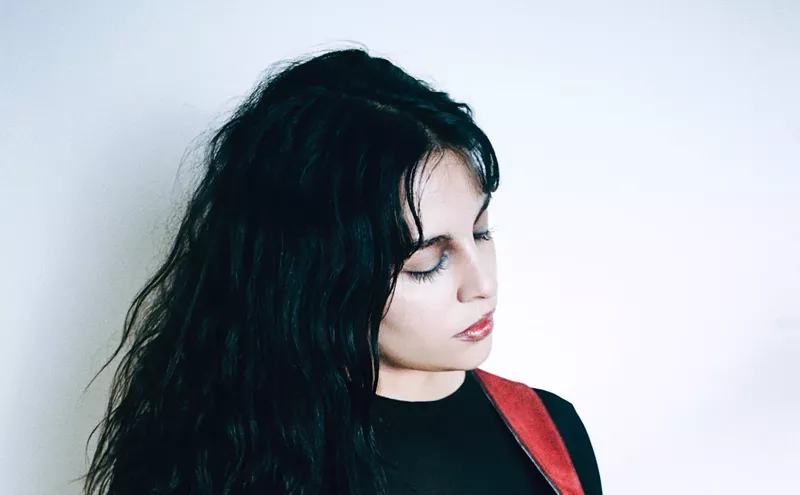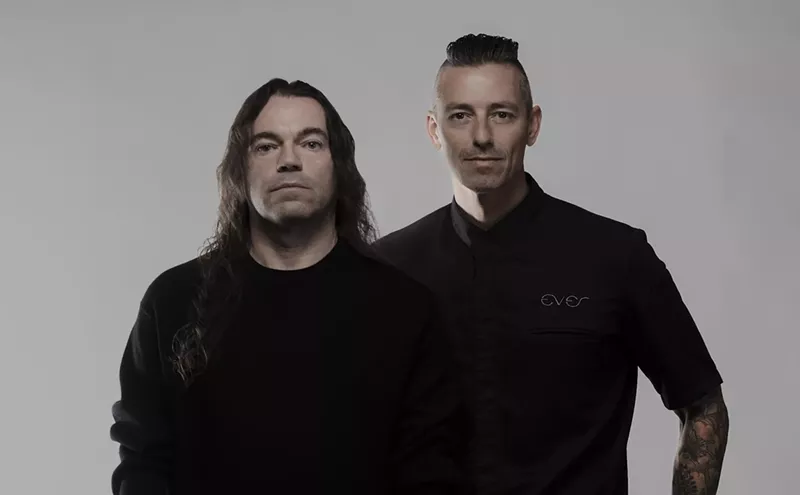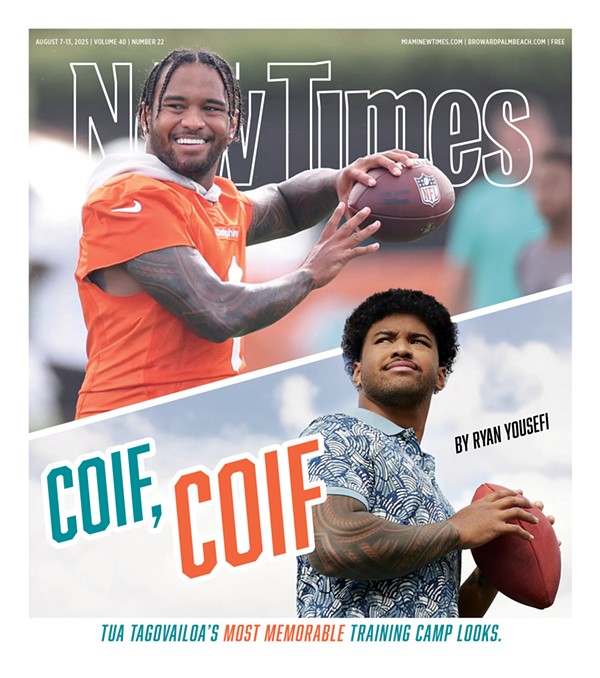--Jon Landau
To settle back is to settle without knowing
"Jackson Cage" by Bruce Springsteen
Much has happened in the personal life of New Jersey's favorite son since the release of his preceding studio album, Tunnel of Love, five years ago. (Chimes of Freedom, a four-song EP, was issued in 1988 as a stopgap and an Amnesty International fund raiser.) If The River forecast Springsteen's ill-fated marriage to movie star Julianne Phillips, Tunnel fore-suffered its demise. Since then, of course, Springsteen, always tougher than the rest, has moved on to Patti Scialfa, who mothered his son, Evan James. Springsteen also divorced his long-time backing group, the E Street Band. All these not-so-private turning points are addressed, at least metaphorically, on Parking Free, Springsteen's ninth studio album, due to be released nationally at the end of this month.
Produced by E Street Band pianist and long-time associate Roy Bittan, the twelve-track LP blasts off with "Parallel on the Boardwalk," a jubilant rave-up that takes the Boss back to his Jersey Shore days in more ways than one. Full of fun and fire, the explosive tune features crashing piano by Bittan and sizzling guitar lines from guest Little Steven, as well as backing vocals by Southside Johnny, Gary U.S. Bonds, and Jon Bon Jovi. With a shout-it-out call-and-response similar to "Rosalita (Come Out Tonight)" and a fierce guitar battle between Springsteen and Little Steven, the track is one of the most exuberant the Boss has ever offered. As he roars, "Signed a contract with a man with big pockets on a rusty old car hood/The light in the parking lot was bad but the money I got was good," he almost seems to laugh. The song lampoons the whole notion of rock stardom - "stillborn" is rhymed with "Billboard"! - and Springsteen's old friends have plenty of room to jam.
But for every "Tenth Avenue Freeze-Out" or "Cadillac Ranch" there must be a "Point Blank" or "Drive All Night," and the boundless energy of "Parallel on the Boardwalk" is tempered immediately by a nostalgic, even bitter, sadness. Though Springsteen has stopped sounding the same one-note symphony about the plight of the working man - there is no "Factory" or "Racing in the Street" on Parking Free - he still despairs for America. But his despair is more precise; he has his own personal anger, disappointment, and frustration to work through.
With contributions from John Prine, "Need a New Pair of Shoes" would have fit nicely on, say, Phil Ochs's classic Rehearsals for Retirement, though it is not as desperate and drowning. Instead, it's an angry strike back at the American press for their intrusions during the Phillips/Scialfa debacle. "He married for love and he left when it left" is about as confessional a lyric as you're going to find these days. Unless, of course, you're listening to the song's chorus: "What's the reason for keeping/The things you can't use/What's the reason for wearing/An old pair of shoes." Deliberately and wildly callous to Julianne, the song both plays up to the media image of Springsteen as womanizer and conveys the confused pain of leaving one woman for another. Even famous superstars have feelings.
These themes of personal integrity and emotional defense are re-addressed in "True Steel Man," in which Springsteen's apparently straightforward lyrics cleverly combine both the death of American industry and the difficulty of intimacy. You'd think the song was about the fear of unemployment, but when the character acquires material wealth, his world virtually falls apart. Simple demands are not so simple in an America that has no soul.
The repeatedly delayed release of Parking Free has been a protracted agony for Springsteen devotees. Not that it isn't worth the wait, but almost five years is a long time, even for the faithful. The Boss, though, offers no apologies for the nineteen months he spent recording in L.A.'s A&M Studios, not to mention the additional seven months of editing and mixing. A studio source claims that Springsteen actually completed an album months ago that consisted of rockabilly tunes with a couple of reggae (yes, reggae) numbers, but he dumped that master and started virtually from scratch.
The funk/R&B-drenched cuts on Parking Free vindicate the delay. There are no superficial anthems for politicians to snap up, but there's an embarrassment of riches for rock fans. Like "Hell Drives a Lincoln," a booming, horn-heavy party song featuring a taut guitar solo by guest Steve Cropper in the bridge. Clearly motivated by the great Stax records of the early and mid-Sixties, such as Otis Redding's "Fa-Fa-Fa" and Booker T. and the MGs' "Green Onions," the song rollicks along from peak to peak. The soul influence is even more apparent on "Hiding from the Dark," a ballad with hardly any instrumentation (a la "Ain't Got You" from Tunnel of Love), on which Springsteen offers an incredibly subtle, soulful vocal that would turn Solomon Burke green with envy.
But if "Hiding from the Dark" simmers and "Hell Drives a Lincoln" smokes, "Free Parking," the centerpiece of the LP and a bona fide masterpiece, is a mature artist's celebration of the music that brought him his fame, and it's also a great songwriter's tribute to the power of mainline rock and roll. Pulsating horns and raucous lyrics are the pistons that drive this supercharged beauty. "And she's leaning up against the bar," Springsteen wails, "And her boyfriend's tensing for a fight/But only I know for sure/Where I'll park my car tonight." More flirtatious than he's been since The River, Bruce's "Free Parking" joins a long line of classic car songs: "Maybelline," "Little Deuce Coupe," "Little Red Corvette," and even Springsteen's own "Pink Cadillac." Throughout this album, Springsteen seems to shake the fear of four-to-the-floor rock that has shadowed him (understandably) since he realized his "Glory Days" were behind him, and he's absolutely ready to rock. How else can you explain the frenetic drums-and-guitar interplay of "Crosstown Lights," or for that matter, "Powershot," the blistering rocker that opens Side Two?
Although Parking Free never stumbles, one song in particular strikes a slightly too-universal chord among anyone who's ever seen love gone wrong. "She Went to Texas," a plaintive guitar-and-harmonica ode to soured romance, backed only by Roy Bittan's gentle piano colorings, has a melody that comes uncomfortably close to "I Blinked Once," from Steve Forbert's Streets of this Town, which isn't surprising in light of the fact that E Streeter Garry Tallent produced Forbert's record. Despite the similarity, "She Went to Texas" explores areas Forbert never has, bringing sadness and desperation to life with its vivid imagery and emotional inflection:
In Laredo she walked the streets
Felt her fingers growing cold
Blackbirds made the sounds of flapping sheets
Sunset colors turned to gold
And I slept near the empty steel mill
Gray and metal as far as I could see
I'm not bound to nobody for nothing
But darling, darling, darling, darling, I ain't free
Not to be confused with the song "Seeds" on the live box set of 1986, the "Seeds" on this album has been on the back burner for several years. Springsteen was smart to resurrect it for the new album. This "Seeds" begins with a haunting harmonica intro, then leaps into the story of a displaced family seeking the American dream in a land where such notions have been deferred by modern hardship: "We've been blowin' around/From town to town/Looking for a place to land/Where the sun could break through the clouds/And fall like a circle/A circle of fire down on this hard land." Against a sparkling piano line, Springsteen sings compellingly about a place where "even the rain it don't come 'round, don't come 'round here no more" and the wind slams the back-porch door shut and twists and turns up the sand, leaving the scarecrows "face down in the dirt of this hard land." A vivid image, as valid today as when it was written in 1985.
Parking Free closes with two duets - one in which Springsteen pairs with himself, and one in which he shares the mike with Patti Scialfa. In the buoyant but lyrically oblique "Right Now," the Boss uses overdub in order to duet with himself, jumbling the continuity of the chorus by singing flatly "give me" then shouting "right now" to form a schizophrenic sound. As the momentum builds to the bridge, the pace quickens, the rhythms explode, and Springsteen rushes headlong into the chorus: "The right time/And the right place/Have never been friends/And you might just disappear/Right now."
The final track, the weepingly gentle "Freehold Lullaby," is dedicated to son Evan, but is, in fact, Springsteen's recollection of his own birth. "Trouble on the bus again today, son/I'll never get ahead this way," he sings, recalling his father, a construction worker and bus driver. As a father himself, Springsteen finds himself dealing with his own sense of having outgrown the freedom and abandon of youth. The maturity of "Freehold Lullaby" assures that he'll never tell his boy to "turn that damn thing down," and Scialfa's mournful contralto lends the perfect sense of fulfillment. The whole affair - full of nobility, promise, and dignity - is reminiscent of "Walk Like a Man," and is equally powerful.












